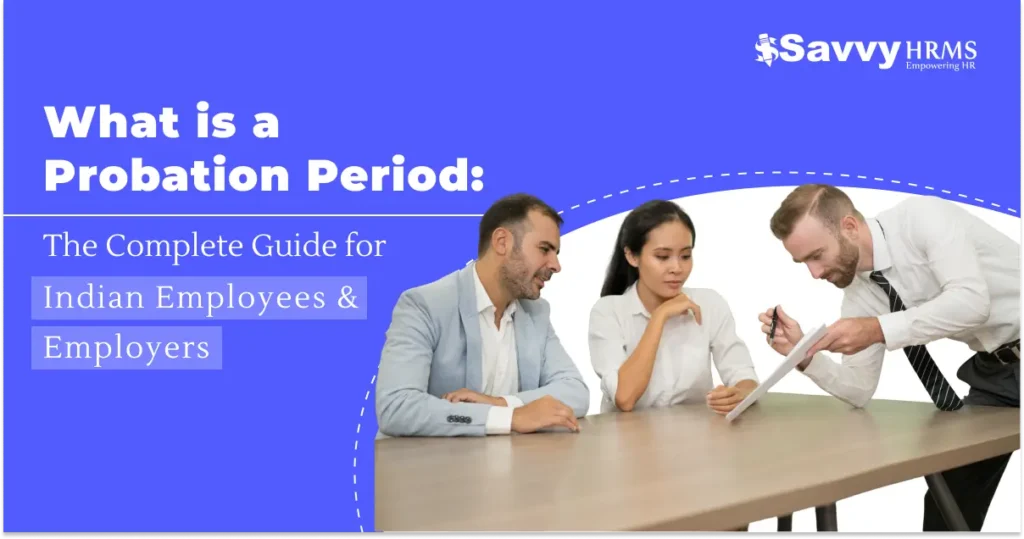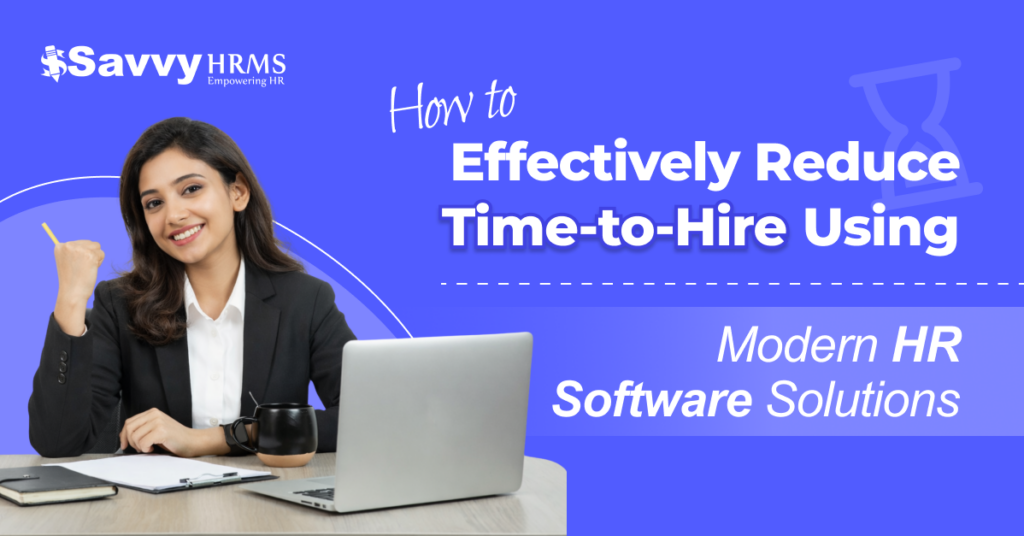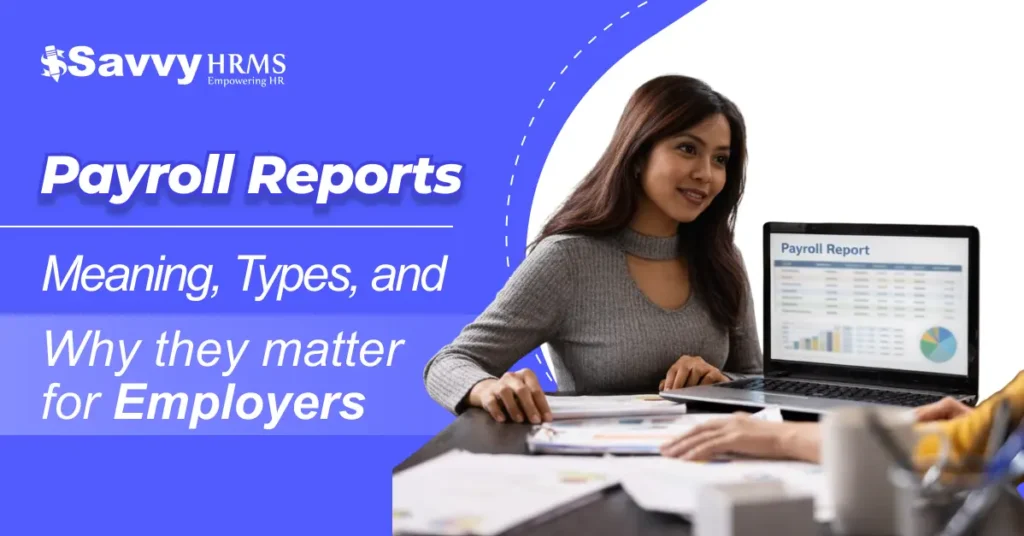Starting a new job? Exciting but nervous too, right?
Well, most companies have something called a probation period waiting for you. It’s a short trial phase where your employer checks if you’re the right fit for the job, and honestly, you also get to see if the company is right for you.
Think of it like a dating period before getting married. Both sides get to know each other better. And if things don’t work out, it’s easier to walk away without drama.
This complete guide explains what is probation period, how it works in India, your rights, rules, and practical tips to pass it successfully. Whether you’re a fresh graduate or changing jobs, you’ll find everything you need to know here.
What is a Probation Period in Job?
A probation period is a trial period of employment where an employer evaluates a new employee’s performance, skills, behavior, and cultural fit before confirming them as permanent staff.
Here’s the simple breakdown:
- What: A fixed trial period for new employees
- Duration: Usually 3-6 months in India
- Purpose: For employers to assess your suitability; for you to check job fit
- Status: You’re employed but not yet permanent
- Outcome: Confirmation as permanent, extension, or termination
During this time, you perform your regular job duties while your manager observes how well you do. They look at things like:
- How you complete tasks and meet deadlines
- Your teamwork and communication skills
- Your attitude toward learning and feedback
- Your adherence to company culture and values
- Your attendance and punctuality
At the end of the probation period, one of three things happens:
- Confirmation: You pass and become a permanent employee
- Extension: You need more time to prove yourself
- Termination: You’re let go because you didn’t meet expectations
Why Do Companies Use Probation Periods?
For Employers:
Companies use probation periods because hiring mistakes are expensive. A wrong hire can cost 30% of that employee’s annual salary in lost productivity, training, and recruitment costs. So a 3-6 month trial period helps them save money by spotting bad hires early.
Plus, it gives employers the flexibility to assess whether you’ll actually work out before investing heavily in training or promotion.
For Employees:
For you, the probation period is an opportunity to:
- Prove your abilities and show you made the right choice
- Learn the job role without pressure of immediate permanent commitment
- Understand company culture before deciding to stay long-term
- Get constructive feedback to improve your performance
- Evaluate if the job matches what was promised in the interview
What Happens During the Probation Period? Step-by-Step
1. Orientation & Onboarding
Your first week involves meeting your team, learning about company policies, understanding your role, and getting introduced to company culture. HR usually handles this phase to make sure you feel welcomed.
2. Training & Skill Development
You receive technical training specific to your job role plus soft skills training. This is when you learn how things work, company systems, procedures, and best practices.
3. Goal Setting & Expectation Clarity
Your manager sits with you to set clear performance goals (often called KPI s= Key Performance Indicators). You’ll understand exactly what success looks like in your role.
4. Regular Performance Monitoring
Throughout probation, your manager monitors your progress through:
- Regular feedback sessions (usually weekly or bi-weekly)
- Mid-probation reviews (around 45-60 days)
- Ongoing KPI tracking
- Observation of your teamwork and behavior
5. Final Performance Review
Toward the end of your probation period, your manager conducts a formal review. They assess your overall performance against the goals you set and company expectations.
6. Confirmation, Extension, or Termination
Based on the review, you either get a confirmation letter (permanent status), probation extension (more time), or termination letter (not a fit).
Probation Period Meaning in India: Legal Rules & Regulations
Important Note: If you’re working in India, these rules apply to you.
1. Duration: How Long is Probation?
In India, probation typically lasts:
- Entry-level roles: 1-3 months
- Mid-level roles: 3-6 months
- Senior/specialized roles: Up to 6 months
- Maximum limit: Cannot exceed 2 months per the Industrial Employment (Standing Orders) Act, 1946, but can be extended to 4 months with written agreement
In Government Jobs: Probation can extend up to 2 years.
The exact duration is always mentioned in your offer letter or employment contract, so always check that document.
2. Which Law Governs Probation in India?
The main law is the Industrial Employment (Standing Orders) Act, 1946.
This law applies to companies with 100+ permanent employees. According to this act:
- A probationer is “a workman who is provisionally employed to fill a permanent vacancy”
- A person becomes permanent only after completing at least 3 months of probation
- The law ensures both employers and employees are treated fairly during this period
3. Can Your Probation Be Extended?
Yes, but with limitations.
If you’re not meeting expectations, your employer can extend your probation. However:
- Extension must be given in writing
- It should clearly state the new end date
- The total probation period (original + extended) shouldn’t exceed the contract limits
- You have the right to know why it’s being extended
4. Can You Get Fired During Probation?
Yes, absolutely.
According to Indian labor laws, employers have the right to:
- Terminate your services with minimal notice or even immediate effect
- End your contract for poor performance or misconduct
- Not provide a reason if the appointment letter allows it (though this is changing)
Important: Termination during probation is NOT considered “reduction in service” under the Industrial Disputes Act, so there’s less legal protection.
However, you cannot be terminated for:
- Being pregnant
- Reporting a safety issue
- Whistleblowing
- Discrimination based on caste, religion, gender, disability, etc.
5. Salary During Probation: Do You Get Paid?
Yes, 100% yes.
You must receive the full agreed-upon salary during probation. Your pay is the same as permanent employees. Your employer cannot reduce your salary just because you’re on probation.
However, some benefits may be limited:
- Benefits that may start after probation: Gratuity, full medical insurance, extended leave benefits
- Benefits you get immediately: Minimum wage, statutory sick leave, basic leave under state laws, PF/ESI (if applicable)
Always check your offer letter to see which benefits apply during probation.
6. Notice Period During Probation: Can You Resign?
Yes, you can resign during probation.
The notice period during probation is usually shorter than for permanent employees. Typically:
- Notice required: 1-2 weeks (sometimes less)
- Check your: Employment contract for exact terms
You don’t need a long notice period to leave, but it’s professional to give at least 1 week notice so your employer can find a replacement.
Important: If you don’t provide the notice period mentioned in your contract, your employer might:
- Deduct money from your final salary
- Withhold your experience letter
- Withhold your relieving certificate
Key Benefits of the Probation Period for Employee and Employer
Benefits for Employees:
- Prove Your Worth – Show your employer you’re capable and deserving of the permanent position
- Learn Without Pressure – Get trained and adjust to the role before permanent commitment
- Evaluate Company Fit – Check if the company culture, values, and work environment match your expectations
- Get Feedback Early – Receive constructive feedback to improve and grow
- Job Security – If you pass, you get permanent status with better job protection and benefits
- Career Building – Gain experience that counts toward your career growth (probation counts as work experience)
Benefits for Employers:
- Assess Performance – See how well you actually do the job, not just in an interview
- Test Cultural Fit – Check if you align with company values and team dynamics
- Provide Training – Give intensive training and onboarding without long-term commitment
- Reduce Bad Hires – Identify unsuitable candidates early before investing heavily
- Save Costs – Avoid expenses of hiring someone permanently then having to let them go
- Evaluate Skills – Confirm that your technical skills match the job requirements
How to Pass Your Probation Period Successfully: Practical Tips
Passing probation isn’t just about doing your job; it’s about making a lasting impression. Here are proven strategies:
Before You Start:
- Research the company – Understand their mission, values, recent news
- Ask questions in advance – Email your manager about first-day logistics
- Prepare your mindset – Go in with enthusiasm and willingness to learn
First Week:
- Be early, always – Arrive 10-15 minutes before your official start time
- Make a good first impression – Dress professionally, smile, and introduce yourself
- Listen and observe – Spend time understanding how things work before acting
- Take notes – Write down important information and instructions
- Meet your team – Build relationships with colleagues; they’ll be your support system
During Probation:
- Set clear goals with your manager – Make sure you know exactly what success looks like
- Communicate regularly – Don’t wait for formal reviews; update your manager on progress
- Ask for feedback – Seek feedback weekly, not just at reviews. Ask: “How am I doing?” “What can I improve?”
- Show initiative – Volunteer for projects, suggest improvements, take on extra work
- Be proactive in learning – Don’t just do assigned tasks; learn beyond your role
- Track your wins – Keep a note of accomplishments, problems solved, and projects completed
- Adapt to feedback – When your manager gives feedback, actually implement it and show improvement
- Build relationships – Be friendly with colleagues, attend team events, and collaborate well
- Maintain consistency – Don’t slack after the first month; stay consistent throughout
- Stay organized – Keep track of deadlines, deliverables, and quality standards
- Maintain attendance – Don’t be absent unless absolutely necessary
- Show positivity – Maintain an optimistic attitude even when things are tough
- Demonstrate your value – Connect your work to company goals and show ROI
As Probation Approaches End:
- Prepare a summary – Document your achievements, skills gained, and value added
- Request a formal review – Ask your manager for a mid or pre-final review
- Address concerns early – If you sense any performance issues, address them immediately
- Show commitment – Express genuine interest in staying and growing with the company
What Happens After Probation Period Ends?
At the end of your probation period, your employer will conduct a final performance review. Here are the possible outcomes:
Scenario 1: Confirmation (Passed ✓)
What happens:
- You receive a confirmation letter making you a permanent employee
- You get access to full benefits (gratuity eligibility, complete medical insurance, paid leave, etc.)
- You’re now entitled to full job protection and statutory rights
- Notice period for termination becomes longer (typically 1 month or more)
- You’re no longer considered a probationer
Your next step: Celebrate! You’ve earned it. Now focus on growth and career development.
Scenario 2: Probation Extension
What happens:
- Your employer extends the probation period by a specified duration
- You receive an extension letter stating the new end date
- The reason for extension is usually communicated (e.g., “Show improvement in XYZ area”)
- You continue under the same probation terms and conditions
Why it happens: Sometimes you show potential but need more time to reach full performance expectations. This isn’t a rejection, it’s an opportunity to prove yourself.
Your next step: Take it seriously. An extension is your last chance to demonstrate you can do the job. Focus on the specific areas mentioned in the extension letter.
Scenario 3: Termination (Not Confirmed ✗)
What happens:
- You receive a termination letter ending your employment
- You’re relieved of your duties, usually effective immediately or with 1-2 weeks notice
- You get your final salary payment
- You may or may not receive an experience certificate or relieving letter (varies by company)
Why it happens: Your performance, behavior, or cultural fit didn’t meet expectations. It happens; it doesn’t mean you’re a bad person or employee. Sometimes the job isn’t the right fit.
Your next step: Don’t be discouraged. Use this as a learning opportunity. Understand what went wrong, learn from it, and do better in your next role.
Conclusion
A probation period might feel like a test, and in many ways it is. But it’s not a punishment, it’s an opportunity for both you and your employer to build a strong foundation for your professional relationship.
The key takeaway:
Whether you’re just starting your career or moving to a new company, use this time wisely. Work hard, stay humble, learn continuously, build relationships, and show your value. Pass your probation successfully, and you’ve earned the trust and credibility to build a long, successful career with your employer.
Remember, every successful professional started exactly where you are on probation. The difference between those who succeed and those who don’t often comes down to attitude and effort during these first few months.
Now go out there and ace your probation period!
Frequently Asked Question
Probation Period: A trial/evaluation period when you start a new job. It's about assessing if the role is right for you and vice versa.
Notice Period: The time required to give notification before leaving (permanent employees) or the time given before termination. It's different from probation.
Example: Your probation is 3 months. If you're terminated during probation, your notice period might be just 1 week. But after probation ends, your notice period becomes 1 month.
Yes, absolutely!
Your probation period is counted as legitimate work experience. You can include it on your resume and future applications. It shows you've worked for the company and performed the job role.
Technically, employers can refuse confirmation even if performance is satisfactory, if the appointment letter allows it. However, this is legally questionable and varies by state. It's best to consult an employment lawyer if this happens to you.
Most reputable companies won't do this—they'll confirm employees who perform well.
You can resign anytime during probation, but:
- Provide the notice period mentioned in your contract (usually 1-2 weeks)
- Give it in writing
- Failure to give notice may result in salary deductions or withholding of your experience letter
Most benefits like gratuity, extended medical insurance, and other perks are available only after confirmation as a permanent employee. However, statutory benefits like PF, ESI, and basic leave apply from day one.
Your salary remains the same it doesn't reduce. You continue receiving your full agreed-upon salary during the extended probation period.
In India, probation rarely extends beyond 6 months for private sector jobs. However:
- Government jobs can have probation up to 2 years
- In rare cases, with written agreement, it might extend to 1 year
- But it should never be more than 2x the standard duration
Check your appointment letter for your specific period.
If probation isn't mentioned in writing, it's harder for them to enforce probation terms. However, the company can still attempt to do so. Always get probation terms in writing before joining.
Yes, you can apply for other jobs. Probation doesn't restrict you from job hunting. However, if you leave during probation, remember to:
- Give proper notice
- Not burn bridges with your current employer
- Maintain professionalism
You have the right to:
- File a formal complaint with your HR department
- Escalate to the company's grievance cell
- In cases of discrimination, file a complaint with the Labor Department
- Seek legal advice from an employment lawyer




